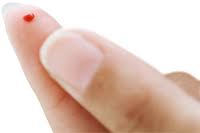December 13th, 2010
Healthy Is Not Always Convenient
Greg Bratton, MD
 7-11s and McDonalds are everywhere. They are successful because they are convenient, and we embrace convenience. We don’t want to go out of our way for anything. We have evolved into a society of drive-throughs, Internet shoppers, and Garmin users. If a short cut exists, we take it.
7-11s and McDonalds are everywhere. They are successful because they are convenient, and we embrace convenience. We don’t want to go out of our way for anything. We have evolved into a society of drive-throughs, Internet shoppers, and Garmin users. If a short cut exists, we take it.
Probably two or three times every day, patients ask me what I can prescribe that will help them lose weight. My answer is always “exercise and a conscientious diet,” but that goes over like a lead balloon. Nobody wants to commit themselves to moderate-intensity exercise for 2.5 hours every week and 2 or more days per week of muscle-strengthening exercises. This would mean that they would have to take time out of their routine and change their otherwise sedentary ways. They are looking for the quick fix — HCG injections, gastric bypass, or, my personal favorite, liposuction. But as soon as I mention the 500-calorie-a-day diet that goes with the HCG injections, or the process of qualifying for gastric bypass — including a proven inability to lose weight through diet and exercise — or the diet that they must maintain after surgery, they change their minds . None of these options is as convenient as their current lifestyle of health negligence.
The idea of convenience is again evident when I discuss screening colonoscopies with my patients. Usually, the conversation goes something like this…
“You’re 50 years old now, so we need to talk about a screening colonoscopy.”
“Ok, Doc. I’ll do whatever you say.”
After addressing all the risks and benefits of the procedure and detailing how the procedure is performed, I say, “You will need to do a bowel prep the night before.”
“A what …???”
“A bowel prep. It’s a gallon of laxative you drink to clean out your colon. You’ll be on the toilet all night, but it’s necessary for a complete exam.”
To which the patient replies, “Nope. Not going to do it. Can’t I just swallow the camera pill?”
I have more patients than I can count who refuse to have colonoscopies because of the inconvenience of the prep the night before. Some just don’t like the idea of losing sleep, but others have bigger barriers to overcome. One of my homeless patients said it best, “I don’t have anywhere that I can ‘go’ that many times.”
But medicine is finally starting to give patients ways to “conveniently” adhere to our recommendations. In the December 3rd issue of Journal Watch Gastroenterology, I read a summary of an article from the American Journal of Gastroenterology that showed a 4-L bowel prep, taken on the morning of an afternoon colonoscopy, improved efficacy and tolerability versus the traditional day-before preparation. This article demonstrated that dosing in this manner caused less disruption of the workday prior to the day of colonoscopy and decreased the amount of sleep deprivation the night before — and prep scores were better than those after nighttime cleansings. For people like my homeless patient, having the option of arriving at the center the morning of the procedure, doing a bowel prep, and having a scope done all at once will undoubtedly improve adherence.
 Other areas of medicine are also moving toward convenience. In the world of cardiology, dabigatran has gained FDA approval for the “prevention of stroke and blood clots in patients with abnormal heart rhythm (atrial fibrillation).” As one of the Journal Watch General Medicine authors noted, the attractiveness of this drug lies in that it is given in a fixed twice daily dosing and does not require international normalized ratio (INR) monitoring. If, and when, this drug reaches the mainstream in the U.S., Coumadin clinics and at-home finger sticks could become a thing of the past. Coincidentally, the other day, I had a patient say to me, “When can I stop taking Coumadin? I hate pricking my finger.” Unfortunately for him, he had a 4-vessel coronary artery bypass complicated by a pulmonary embolism, so my response was, “Never, unless we get dabigatran on formulary.”
Other areas of medicine are also moving toward convenience. In the world of cardiology, dabigatran has gained FDA approval for the “prevention of stroke and blood clots in patients with abnormal heart rhythm (atrial fibrillation).” As one of the Journal Watch General Medicine authors noted, the attractiveness of this drug lies in that it is given in a fixed twice daily dosing and does not require international normalized ratio (INR) monitoring. If, and when, this drug reaches the mainstream in the U.S., Coumadin clinics and at-home finger sticks could become a thing of the past. Coincidentally, the other day, I had a patient say to me, “When can I stop taking Coumadin? I hate pricking my finger.” Unfortunately for him, he had a 4-vessel coronary artery bypass complicated by a pulmonary embolism, so my response was, “Never, unless we get dabigatran on formulary.”
Unlike the fast-food industry’s negative effect on our nation’s health, convenience in medicine is not bad. It should lead to improved adherence and better patient outcomes. In just these examples, we could find more early-stage colon cancers that otherwise would have gone undetected and improve the quality of life for those on chronic anticoagulation.
Now, if we could just find a pill that is equivalent to exercise, our medical practices might become as successful as 7-11s and McDonalds.

